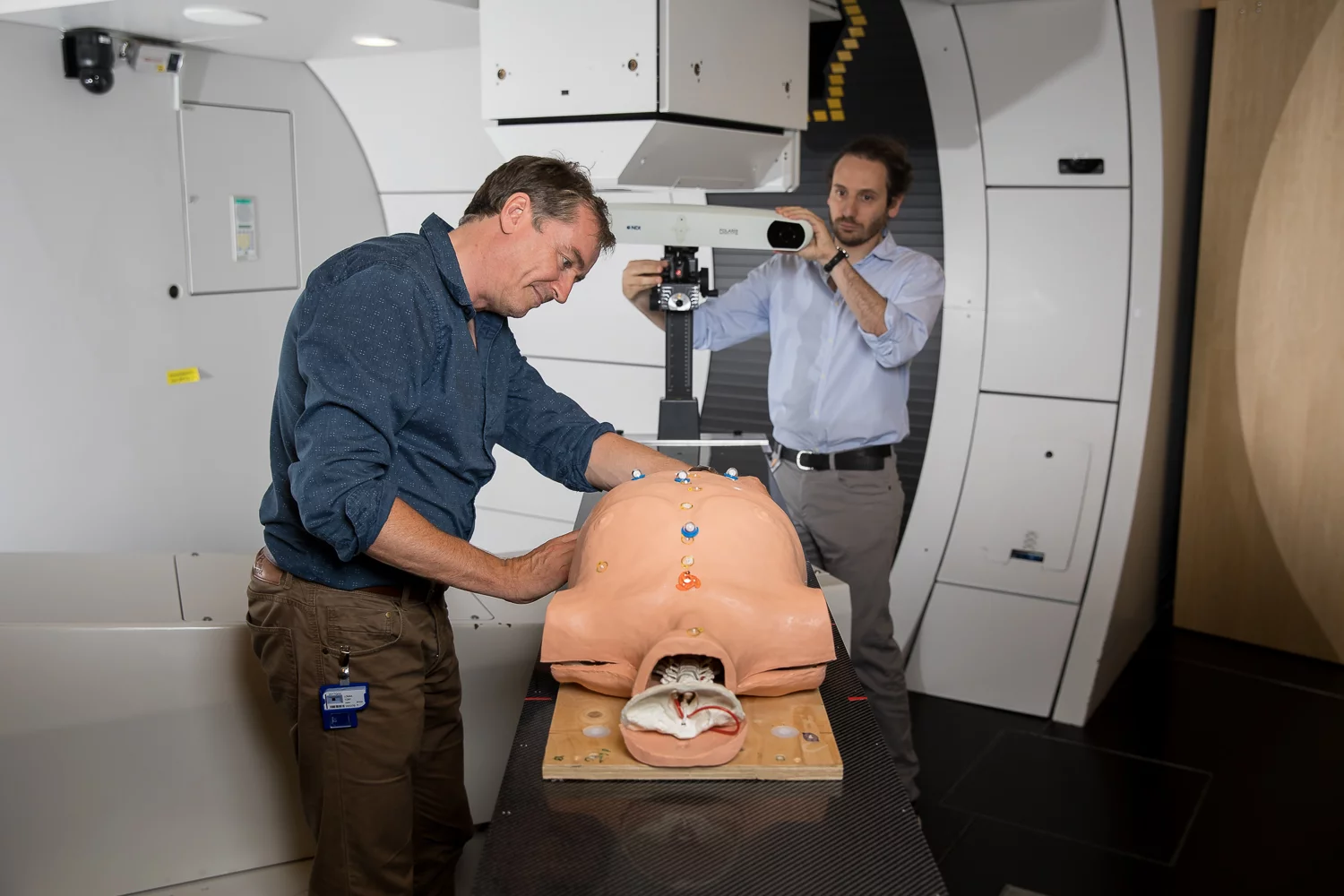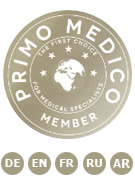Medical physicists are responsible for the technical quality of the proton therapy administered at CPT. A team of specialists makes sure that patients are treated safely and responsibly. On the one hand, they make sure that technical devices are kept in perfect running order. On the other hand, they also draw up individual, computer-supported therapy plans for every single patient.
Do medical physicists work side by side with doctors?
Doctors take care of the patients. Medical physicists are the “doctors in charge of the machines and software systems”. Cooperation is close and starts with the tumour board where both professional grous discuss the patient’s suitability for proton therapy. They also take joint responsibility for the therapy planning: medical physicists are interested, above all, in matching the best form of radiation with the individual’s specific condition. That includes decisions on the beam direction and the level of individual doses emitted by the spot-scanned beam in different parts of the body.
What makes spot-scanning special?
The spot-scanning method was developed here at the PSI and has become the modern standard for proton therapy worldwide. The reason why spot-scanning is so successful is that it allows every point of the targeted tumour tissue to be irradiated using only a pencil-thin beam, with minimal effect on the surrounding organs.
Do medical physicists also carry out research?
The CPT employs not only medical physicists working in clinical surroundings but also those involved in research. Research is important for the continued improvement of treatment. Being close to the clinic is essential in this process since it allows to investigate and adapt methods to real-life issues and problems. Patients need to know that every new development or technical improvement is a long process. Applying research results to treatment methods is subject to strict control mechanisms.

